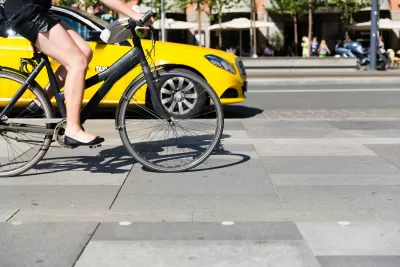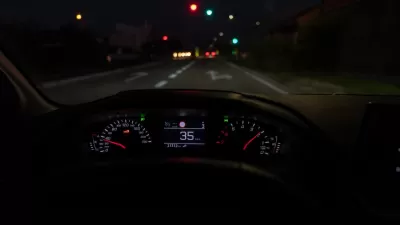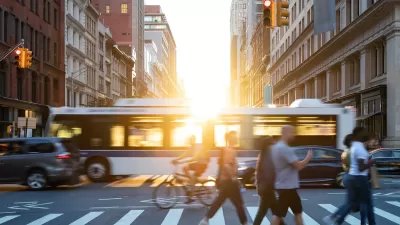A new set of guidelines will help the media improve the accuracy of traffic safety coverage.

The Active Travel Academy drafted a set of "Road Collision Reporting Guidelines" meant to reduce partiality and increase accuracy in reporting.
"There’s a problem with how we talk about our roads. From news reports on “accidents” to who gets blamed for road danger in comment pieces, our media sources sometimes flip the sources of death and injury on their head. Language and accuracy matter, and too often reporting contributes to making the roads less safe," write Laura Laker and Martin Porter.
Laker and Martin point to research indicating that different verbiage used to describe crashes "affects how people see the causes of and solutions to road danger."
"Representatives from national roads policing, the National Union of Journalists’ ethics council, road safety and legal experts, academics, and with advice from the independent journalism regulator Impress" helped to composed the guidelines.
The guidelines set forth the following instructions for publishers:
- Refrain from using the word "accident" when describing road collisions.
- Avoid negative generalizations when referring to road users or specific groups of road users.
- Uphold context and fact in reporting, including making mention of human actors involved in collisions.
- "Avoid portraying dangerous or criminal behaviour on the roads, such as speeding, as acceptable, or those caught breaking the law as victims."
FULL STORY: Why we need media reporting guidelines for road safety

Alabama: Trump Terminates Settlements for Black Communities Harmed By Raw Sewage
Trump deemed the landmark civil rights agreement “illegal DEI and environmental justice policy.”

Planetizen Federal Action Tracker
A weekly monitor of how Trump’s orders and actions are impacting planners and planning in America.

The 120 Year Old Tiny Home Villages That Sheltered San Francisco’s Earthquake Refugees
More than a century ago, San Francisco mobilized to house thousands of residents displaced by the 1906 earthquake. Could their strategy offer a model for the present?

In Both Crashes and Crime, Public Transportation is Far Safer than Driving
Contrary to popular assumptions, public transportation has far lower crash and crime rates than automobile travel. For safer communities, improve and encourage transit travel.

Report: Zoning Reforms Should Complement Nashville’s Ambitious Transit Plan
Without reform, restrictive zoning codes will limit the impact of the city’s planned transit expansion and could exclude some of the residents who depend on transit the most.

Judge Orders Release of Frozen IRA, IIJA Funding
The decision is a victory for environmental groups who charged that freezing funds for critical infrastructure and disaster response programs caused “real and irreparable harm” to communities.
Urban Design for Planners 1: Software Tools
This six-course series explores essential urban design concepts using open source software and equips planners with the tools they need to participate fully in the urban design process.
Planning for Universal Design
Learn the tools for implementing Universal Design in planning regulations.
Clanton & Associates, Inc.
Jessamine County Fiscal Court
Institute for Housing and Urban Development Studies (IHS)
City of Grandview
Harvard GSD Executive Education
Toledo-Lucas County Plan Commissions
Salt Lake City
NYU Wagner Graduate School of Public Service





























